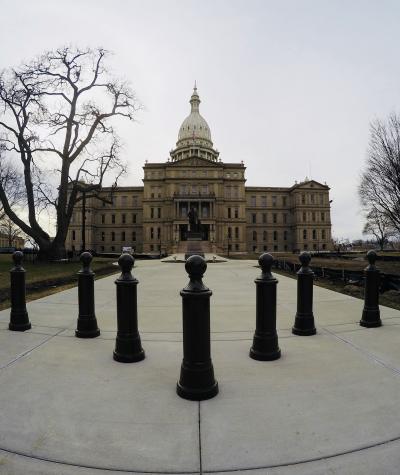Michigan legislators recently proposed bills that would ban Michigan officials from informing the public about the sources behind election-related spending, increase the risk of undetected conflicts of interest among Michigan officials, and undermine the effective enforcement of the state’s campaign finance and ethics rules.
CLC sent a letter urging legislators to support transparency and Michigan citizens’ right to effective enforcement of the state’s campaign finance and ethics laws by opposing Senate Bill (SB) 1176 and SB 1250.
SB 1176, dubbed the “Personal Privacy Protection Act,” contains sweeping language that would broadly ban state and local agencies from requiring public disclosures by section 501(c) nonprofits, including “social welfare” organizations, labor unions, and trade associations that engage in extensive political campaigning and lobbying activity.
As CLC’s recent report on transparency and the First Amendment explains, in recent election cycles, 501(c)(4) “social welfare” organizations and 501(c)(6) trade associations have emerged as the top vehicles for dark money spending. While other states have been working to close loopholes that have allowed the increasing role of dark money in election campaigns, SB 1176 would codify those loopholes as enforceable law in Michigan.
Although a last-minute amendment to SB 1176 provides that the bill’s requirements “shall not affect” Michigan’s campaign finance act, that vague language conflicts with the bill’s broad and explicit secrecy mandate, which purports to apply “[n]otwithstanding any law to the contrary.”
The last-minute amendment only underscores the harm caused by the legislature’s rush to vote on the bill. And even if SB 1176 ultimately exempts campaign finance disclosure requirements from its broad disclosure ban, the bill will still make it easier for Michigan lawmakers to hide any conflicts of interest and could facilitate a rise of pay-to-play politics by shielding such arrangements from public scrutiny.
CLC is also urging opposition to SB 1250, which would completely overhaul Michigan’s campaign finance regime by supplanting the recently elected Secretary of State’s authority over campaign finance enforcement with a new state commission.
Although CLC does not object to independent campaign finance commissions in the abstract, it has serious concerns about SB 1250, which was proposed during a lame-duck legislative session following Michigan voters’ recent election of a new Secretary of State whose statutory jurisdiction currently includes campaign finance oversight. In addition, SB 1250 lacks any legislative record indicating the reasons for the change, and the new six-member agency proposed in the bill appears to be modeled after other dysfunctional campaign finance commissions, including the Federal Election Commission, which is notorious for its “dysfunction and deadlock.”[1]
Democracy works best when all voters can participate and not have their voices drowned out by dark money and unethical practices. CLC urges the legislature to oppose SB 1176 and SB 1250.
[1] See, e.g., Ann M. Ravel, Dysfunction and Deadlock and the Federal Election Commission, New York Times, Feb. 20, 2017, https://www.nytimes.com/2017/02/20/opinion/dysfunction-and-deadlock-at-the-federal-election-commission.html.

